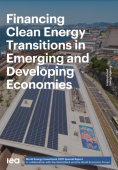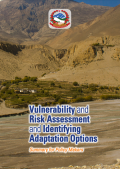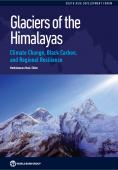
This International Energy Agency report addresses the challenge of mobilizing investment and finance to support clean energy transitions in the emerging and developing world. It draws on a wide range of case studies and recommendations for priority actions to get the investment tap flowing to vast under-served areas.

The Government of Nepal (GoN) recognizes the importance of Vulnerability and Risk assessment (VRA) in adaptation planning and implementation. The main goal of this assessment is to help Nepal’s National Adaptation Plan (NAP) process assess climate-related hazards, vulnerabilities, and risks, as well as identify practical adaptation options at the municipal, sectoral, and provincial levels.
The report from the Science Based Targets initiative (SBTi) takes stock of corporate climate ambition in G7 countries. It assesses the temperature ratings of the leading equity indexes of their markets and frames science-based target setting as the solution to bridge the ambition gap, outlining levers to unlock breakthrough climate mitigation action.

Melting glaciers and the loss of seasonal snow pose significant risks to the stability of water resources in South Asia. Climate change and deposits of anthropogenic black carbon (BC) are the major drivers of the accelerating glacier melt. This report investigates the extent to which the BC reduction policies of South Asian countries may affect glacier formation and melt within the context of a changing global climate. It assesses the relative impact of each source of black carbon on snow and glacier dynamics. The authors simulate how BC emissions interact with projected climate scenarios, estimate the extent to which these glacial processes affect water resources in downstream areas of these river basins, and present scenarios until 2040.
This report explores developments in the field of the circular economy in the Arab States of the Gulf region (notably the members of the GCC – the Cooperation Council for the Arab States of the Gulf), to identify areas where the EU and the GCC countries can strengthen their collaboration.
